
Marion Crane
A frame-for-frame remake of the famous Shower Scene of Hitchcock's Psycho with 60 actresses for its 60th anniversary, a different actress in each shot.
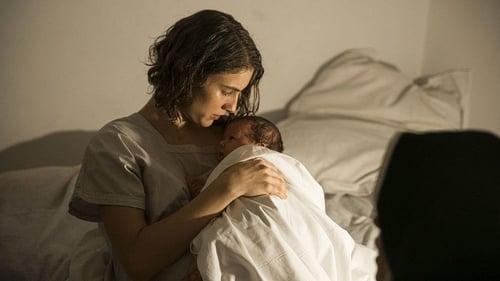
Mária
The Aurora Borealis is a story of family that is rich in twists and turns. It breaks the depths of the relationship between mother and daughter. A successful lawyer in Vienna, Olga is called back to Hungary when her old mother, Mary suddenly falls into a coma. While Mary is floating between life and death, Olga finds a deeply silent secret. The increasingly passionate research leads back to the post-war Europe of the '50s.

Mama
Drop dead please! Following the sudden death of a mysterious engine driver in his sixties, the Wife, the Lover, her illegitimate Daughter and an increasing number of shady characters from his spurious past want to know the true identity of the man they loved. They are dying to know which of them was really loved by him, and where he has hidden the fantastic fruit of his double life. In their deadly struggle, our heroes find themselves in the center of a satirical crime comedy, the sinful roots of which stretch back to the eighties, the closing decade of the socialist era.

Emmi
Three women from three generations are forced together, mentored by an old diva and a transvestite, to form a band. They are successful on stage, but off of it they are not getting along at all.
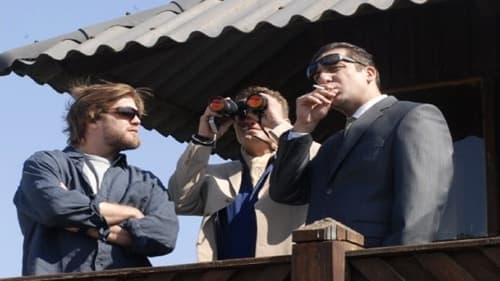
Small-town politics (corruption etc.) in Hungary.

Nonna Clara
Matteo, a boy from the city, goes to visit his grandfather in a secluded mountain village, where preparations for a local ancient festival are under way. Matteo spends the eve of the festival with Lidia and three other boys from the village. The group of kids begins a dangerous game, bringing up obscure mysteries that are rooted in the past of that mountain valley. Matteo thus goes through a sort of initiation, at the end of which he is able to exorcise his fears, but only after becoming uncomfortably conscious of the existence of evil.

Nagyi

Nunu
The aging Eszter clarify outstanding relationship.

In the closed world of a Catholic monastery shortly after World War II the post-war insecurity exacerbates the walls. A new world order has arrived. The monastic life begins to break down as some of the monks start to morally decline.

Csoltinné
Noah's Ark .

Narrator
'A Guest of life' is inspired by the journey of Alexander Csoma de Koros. The eccentric 19th century set out from his native Transylvania to central Asia on foot, only taking his knowledge of 13 dead and spoken languages with him. He wanted to find the ancestors of the Hungarians, but once reaching Tibet he stayed there, compiling an English-Tibetan dictionary, translating and abridging Buddhist teachings and literature, including the Book of the Dead. The film however is not a biopic, but a collection of impressions of Tibet, recorded on an 8mm camera, overlaid with excerpts from Csoma's diary and translations, spoken on the many languages familiar to Csoma. Intercut with the documentary-style footage are animated segments, which tell Transylvanian folktales that have been weaved around the legendary figure of Csoma.

Nagyi
Two stories running in parallel: In one, a model is surrounded by men wanting to use and abuse her though, without realizing it, she is protected by a strange tramp guardian angel. In the other, a blind goldsmith struggles to produce his latest commission in the midst of his alcoholism and depression. Both then descend further and further into their own personal hells until they finally re-find peace with themselves and then their stories briefly merge.

Török Mari
Iván is living in exile from Hungary when he receives word that an old flame is ill. His return to Budapest rekindles old memories and reopens old wounds.

Inge Dietrich
A movie from the italian director Fabio Carpi.
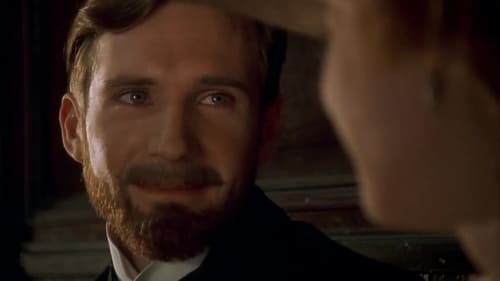
The story of a Jewish family living in Hungary—through three generations—rising from humble beginnings to positions of wealth and power in the crumbling Austro-Hungarian Empire. The patriarch becomes a prominent judge but is torn when his government sanctions anti-Jewish persecutions. His son converts to Christianity to advance his career as a champion fencer and Olympic hero, but is caught up in the Holocaust. Finally, the grandson, after surviving war, revolution, loss and betrayal, realizes that his ultimate allegiance must be to himself and his heritage.

A tale about an independent-minded university professor who leaves her family to travel across the countryside to visit a friend.

Gizella Weisz is an middle-aged office worker, who gets a promotion one day. Her boss told her that a new outpost is waiting for her. There she would be heading a new section. She travels from place to another and finally arrives at her new outpost. It is a remote shed, where a half-insane co-worker is waiting for her. It is obvious that Weisz has not been promoted, but punished. However Weisz does not realize that herself. Without questioning she just accepts her promotion.
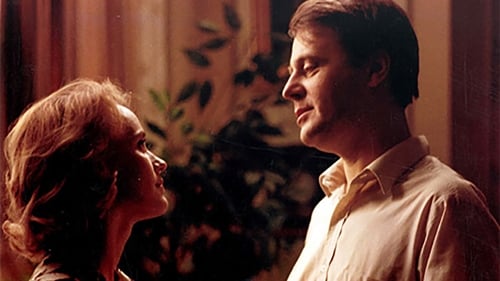
Edit anyja

Helga Madarász
This Hungarian comedy depicts the exploits of 8 members of a travelling troupe of actors and musicians as they move about the country performing a series of one night stands.

Tamás is trying to escape the meaninglessness of everyday small town life. He becomes an Indian and builds a hut by the forest. Although he later returns to the town to is mother, he remains an eccentric even there; a cowboy. Everybody pokes fun at him, only children regard him with respect. He finds a friend who also wants to become an Indian, but the boy is soon shut into an insane asylum.

Maskó
This is a story of a man who wants to grasp and hold his beloved one by him and a woman who insists on that her love can't be grasped; 'she' only can deliver hers. It has written Comedy, Romance etc... but, this movie doesn't include anything funny, I believe. After I see the movie, I thought that love springs through a one's heart and it has its own spirit. It doesn't have to have any company. The matter is if it coincides its mate; that's it.

Lojzi mama
The story happens in 1989 in the suburbs of Budapest, where the neighbor maintains an underground worker's guard training base, while the youngsters fall victim to a mistakenly posted letter.

Mrs. von Schleheim
In pre-WWI Austria-Hungary, a physician struggles with his decision about which woman will he marry.
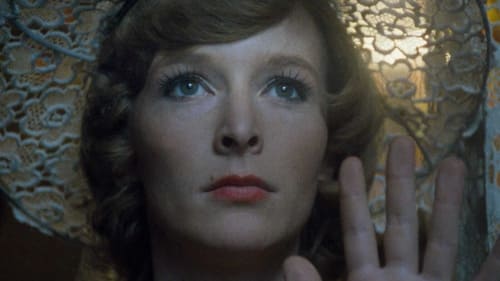
Vera
This story follows a young student, who is orphaned as she grows to adulthood in the shadow of the 1956 Hungarian uprising. Coming from the Communist intelligentsia, she sees her friends and family react differently. Her lover, a married factory manager, supports the patriots and later assists fellow workers in staging a strike. Meanwhile her sister and others express anger at being forced from their homes during the revolution and continue to express a hatred for the rebels afterwards. But in the end they realize that for all people, real life is not possible after the revolt and its brutal suppression by the Soviets and their collaborators.
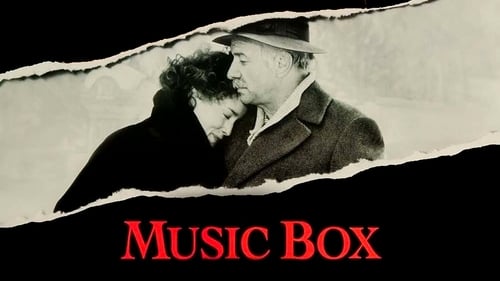
Magda Zoldan
A lawyer defends her father accused of war crimes, but there is more to the case than she suspects.

The life of Tamás, antiquities dealer, runs in a normal, everyday way, he is stealing, swindling, cheating on his wife just like everybody else. Suddenly three men, who live in the attic, start harassing him. They construct coarse and unpleasant schemes against him and carry them into effect at the most unexpected times and places.

During World War II Eszter has to choose: she either follows her husband abroad, who is chased by the Gestapo or stays with her daughter from her first marriage.
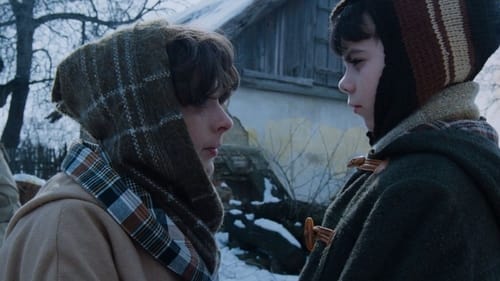
Nagyi
The story of 10-year-old boy and his family against the backdrop of the bloody events of 1956, in Budapest. Children do not yet understand what is going on, but they're happy because the schools are closed. But gradually, to adults and children comes the understanding that something terrible is happening. Disappearing relatives, friends, and even killed some. Tips sent an army to put down the counterrevolutionary rebellion.

Langó Seraphine

Mariann's mother
In December 1956 there is a chaotic situation in Hungary. The revolution is put down by the Soviet army. People leave the country in large numbers for fear of revenge. A young soldier (György Angeli) who also took a part in the revolution, takes a train to Vienna together with his friend (Dániel Szerencsés). Written by Tamas Patrovics

Divided into two different halves separated by mood and subject matter, this is an uneven drama about the experience of one Hungarian Jew before and during the fascist takeover of Budapest. The hero Pali (Zoltan Bezeredi) arrives back in Budapest from the U.S. and meanders among the intellectual and social elite before he leaves for a brief stay in England. There he has an even briefer affair with a happy-go-lucky aspiring actress (Anna Kubik), and after a few other encounters with movie mavens, he heads back to Budapest -- quite inexplicably. The rest of the film deteriorates into a dark realm of hatred and violence.

1866. The Habsburg monarchy fight a war against the Italians and the Prussians. General Klapka, who emigrated to England after the fall of the 1848-49 freedom fight of Hungary, exploits the situation and organises a Hungarian legion with the help of the Prussians, then attacking the Austrians in their back sets out to return to Hungary.

Százarcú boszorkány
The poor but carefree vagabond Johnny meets the princess Árnika and they fall in love. An evil witch casts a spell on them which turns one of them into a duck. In order to be free of the spell they embark on a long journey to meet King Ajahtan Kutarbani, the only one who can lift the spell.

Based on Shirley Jackson's eerie short story The Summer People.

Satire from the makers of hungarian classic Love (1971): director Károly Makk and writer Tibor Déry. Made for TV.

A mama (as Törõcsik Mari)
The scene of the story taking place in the 18th century is an inn, which is advertised by its owners for sale. The inn was namely the scene for mysterious disappearances and murders, but the result of all these events, the treasury is hidden and guarded by the mother. Everybody want to get it from her during one night: the inn-keeper couple, the fake couple who arrived as buyers, Colonel Majorossy with his son, the secret agent and the servants.

A man becomes acquainted with the mystery of female hands during a trip.

The director has intertwined an old amateur film, shot about the Kosztolányi-family, with the adaptation of three short stories of the author. Just like the actors of the amateur film, the main characters of the three short stories are making desperate attempts to appear easy-going and self confident in the eyes of the world. In the hero of Key, the father who at home appears to be an unapproachable, important person, is suddenly revealed to be an insignificant and humiliated office clerk before his son. In Bathing, it is the severe, "tough guy" father who does not know himself and is therefore depressed and causes an irredeemable, tragic accident. In China Vase, the important guest invited with great reverence breaks into pieces the only treasure of the poor clerk couple with a nonchalant gesture. Yet, there is hope: after many years, the woman tells the mystically enlarged story with appropriate self-irony.

This sour and melancholic film recalls a few days of a forty-year-old woman in a crisis. Teréz is always disciplined but feels depressed and aimless after her divorce.

Géczy Julianna

Déryné
Dery is a grande dame actress of the Sarah Bernhardt school of big-gesture theater. Her beauty and popularity is fading, and a new school of acting which involves the use of one's own emotions (a-la Eleanora Duse) is emerging in the person of her younger Viennese rival. She thinks of retiring from the stage, and reunites briefly with her estranged husband in a newly-built manor in the country. Finding that life there is boring, she returns to town, the theater, and her old friends.
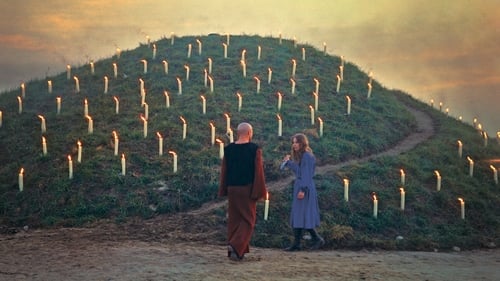
Elektra
It has been fifteen years since the death of her father, Agamemnon, and Elektra still burns with hatred for Aegisztosz, who conspired with Elektra's mother to kill him.

Maid
Karoly Makk's heartbreaking story of two unmarried sisters who cast wistful glances back at their lives, but still believe in hope and love, earned an Academy Award Nomination for Best Foreign Language Film in 1974. In this follow-up to the director's internationally acclaimed Love, Makk once again exhibits his extraordinary skills at drawing emotionally compelling performances from his talented female leads. Makk's film opposes the bleakness of the outside world with passion, love, and loyalty.

A lány anyja

This poetic film presents the ballad of the boys who turned into stags, by the associative means of music, painting and folk art. At the same time it is a memorial to the martyrs of the 1944 Sátoraljaújhely prison revolt and shows its butchery reflected through the fate of three brothers.

Erzsi néni
This film describes the narrator's childhood, the years before and after the Hungarian Soviet Republic, in a burlesque and fabulous style and with the humour of a child's fantasy.

Juli, Kántor felesége
This Hungarian film chronicles the slow deterioration in the life of Juli, a farmer's wife. As the countryside grows ever more deserted because people are moving to towns or large collective farms, she spends more and more time alone. Despite her best efforts to appreciate her situation, her despair grows. The loneliness is briefly interrupted when she and her husband take in an old woman and care for her, but the woman dies. Shortly after her son visits, she is killed in an accident which may have been a suicide. ~ Clarke Fountain, Rovi

Varga Veronika
The film adapts a true story from the beginning of the 70s.
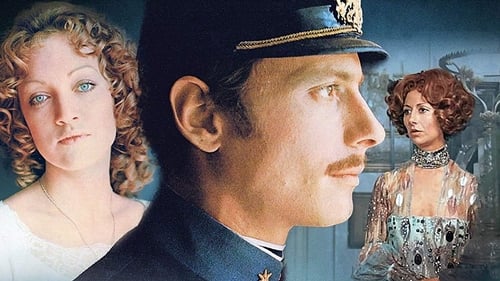
Trotta is a 1971 West German film directed by Johannes Schaaf. It is based on the 1938 novel Die Kapuzinergruft (The Emperor's Tomb) by Austrian author Joseph Roth. It was chosen as West Germany's official submission to the 45th Academy Awards for Best Foreign Language Film, but did not manage to receive a nomination. It was also entered into the 1972 Cannes Film Festival.

Virginia
The head of the nunnery is dying, and the members are divided in two groups as the election of the new head approaches. Led by Virginia, the younger nuns stand up for changing the strict religious dogmas and would like a modern school with genuine science, a bathroom to be built, and a freer spirit. Their candidate is sister Magdolna, who went to secular universities, too. The seminarists, led by Király Erzsi, also rebel against the older nuns' strict discipline and the depressed atmosphere of the institution. However, Magdolna does not want to stay involved in the fight because she is deterred by Virginia's sinful attraction towards her and the tools Virginia is using to gain victory at any price.

Luca
Luca regularly visits her bedridden mother-in-law. Luca's husband, János, has been arrested on a trumped up political charge, and Luca does not know if he is still alive. Luca hides this from his mother by making up letters purporting to be from János who is directing a big film in New York. Luca discovers that János is alive, and is dismissed from her teaching job because of her husband. The dying mother anxiously awaits the return of her son from New York.

Teréz

The two main characters of this ironic account of the general condition of intellectuals are the charming psychologist, Korin György, and the unexpected. Korin starts a television series of people in their 40s. In the afternoon just after the first section, however, he is reported to be dead as a result of a rather strange accident. Everything turns upside down.

Kalán Imre, the district doctor lives in a small village surrounded by mountains. One day he is visited by two young relatives of his and their friend, a doctor at the beginning of his career. The name of the doctor is Király András, and he happens to be the great love of Kalán's young wife from her unmarried years. The orthodox Stalinist Kalán's entire life is filled with his great passion, hunting. The suffocating, narrow lives of the prominent people in the area are slowly revealed to András.

Szonya
The film is a story of a double journey. The main character of the first journey is the author himself, who, while sitting in his customary café, suddenly realises that he has hallucinations. The psychologist reassures him that all this is merely repression. The symptoms, however, appear again. Soon it turns out that the author has a brain tumour. Professor Pötzl in Vienna suggests operation right away. The intervention, through which he is awake, is carried out in a Stockholm clinic.

Illemtanárnõ
A 1970 film.

Évike - Lajos felesége (as Törõcsik Mari)
The grotesque comedy with crime elements takes place in a grocery store.

Mari (as Törõcsik Mari)
The young Valkó wants to plan a block of apartments that will still be modern fifty years from now. His ambitious plans are continuously rejected by his manipulative and careless superiors. So instead of the modern block of flats he only plans a bachelor apartment.
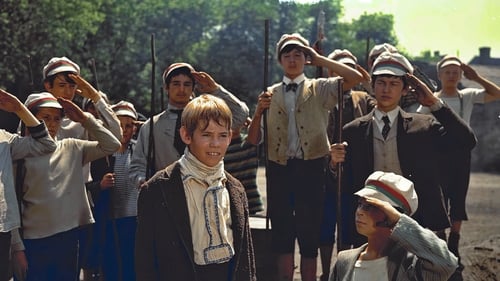
Nemecsek anyja
In Budapest, two rival gangs of young boys lay claim to a vacant lot. The hostilities escalate yet never quite boil over into actual violence. Just when things do get out of hand, however, the problem is "solved" by the city government, which takes over the lot for future development.

Judit

Balassáné - Edit
Edit, who became the wife of a politician out of a simple peasant girl, suddenly becomes a widow as a result of an accident. She never loved her husband. She lives a wealthy and lonely life amidst false friends, facing one of the last alternatives of her life, i.e. having to face her past in the hope of an independent new beginning.

Mária

Teréz
Set during a turbulent era of disquiet, fear, persecution and terror, which permeates every corner of post-WWI Hungarian society. In 1919, after just a few months of communist rule the Hungarian Republic of Councils falls victim to a nationalist counter-revolution. Admiral Horthy, leader of the nationalist far right movement, becomes the self-proclaimed regent of Hungary, and assumes power as the legal Head of State. Soldiers of the short-lived Hungarian Red Army are now on the run from relentless secret policemen and patrol units of the nationalist Royal Gendarme. If caught, ex-Red Army soldiers are executed without mercy or proper trial. István Cserzi, a former soldier of the Red Army has fled to the Great Hungarian Plains and has taken refuge on a farm, which is run by two sympathetic women. Due to the generosity of these women and a former childhood pal...

Barta has been investigating for a year in the murder case of a professor of medicine. Keller, the victim, has been shot dead in his own villa. Barta joins the closest relatives and they all travel to Dunaszentmárton by ship for the inaugural ceremony of his tomb.

The pseudo crime story honours the bohemian world at the beginning of the century.

In this caricature-like film an old film director offers his memories of his career to his former student, now a studio manager, as an idea for a new film. We can see the director in Berlin in the twenties, where his task is to make a film star of Hungarian origin cry out of homesickness.

The film takes place in the outskirts at the end of the fifties. Gabi and Vince meet at the factory party. As the man learns that Gabi raises her little son alone, he does no longer want to marry her. An unclear and for Gabi humiliating relationship forms between them until the old suitor of Gabi, Feri appears.

An ambitious theatre director arrives in Gyulaháza from the capital. The aim of the young Debrődy is to shake up the locals and turn the life of the town upside down.

Klári

Margit
Based on a novel by Dezso Kosztolani, this Hungarian drama is set at the turn of the 20th century. A young, homely woman lives at home with her mother and retired father. Because of all the care the girl provides for her parents, the couple becomes detached from the world outside their home. When the girl leaves for a short visit to her uncle's home, the parents realize the extent of their separation from society and their selfish feelings toward their own daughter.

The turnings of this satirical story are accentuated by the comments of the Director and the Author. Éva is in love with Zoli. She expects to live a wild and modern life by his side, not the boredom of a petite-bourgeois household. On a drunken morning, Zoli writes a poem. The poem is published in a morning paper and divides readers. Because of the poem the young man is dismissed it from his work, and his landlord kicks him out from the apartment.

The film depicts the period between 1945-60 through the life of a communist couple. Barna Judit, just released from a concentration camp and Horváth László, with an illegal past are brought together by the communist movement. They study and make plans together in the hope of a future that will make sense. The marriage they just entered, however, gets ruined soon by the events of history.

Mira
Sebők Zoltán, the brain surgeon, performed a secret abortion on his lover and the woman died. The man waiting for the autopsy (and his arrest) escapes to his father's villa at Lake Balaton.

Szöszi

The scene is a small town in the Hungarian Plain, the time is Summer 1945. The diggers who have been left out of land distribution are demonstrating in front of the City Hall. Upon the advice of an unemployed engineer having returned from captivity, an uncultivated and barren piece of land is distributed among them.

At the beginning of the 50s, Jani, the young pitman, goes to work to a new mine. To his disappointment, he is only employed as a trammer. After lengthy disputes he manages to get to the post he desires.

A comedy about the dwellers of a newly handed-over building. The sullen doctor Birkás is concerned that his wife also has a job so there is nobody to keep the apartment tidy. What is more, it happens that the doctor must cook the dumplings stuffed with plums himself. The lady hairdresser, Albert, is rather jealous of his wife. His jealousy is not entirely ungrounded, and Mancika runs away with a motorcyclist. The Korbusz family live a little crowded, because in addition to Öcsi, even an energetic grandmother lives with them. But the peacefully troublesome time spent together does not disturb the family's happiness.

her daughter
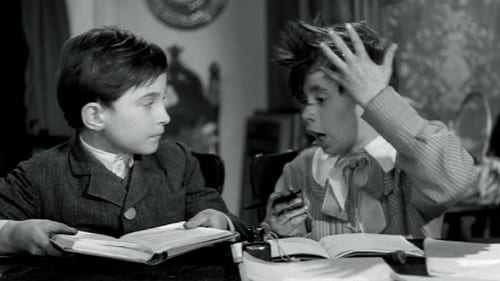
Bella
A moving story of a bright and sensitive schoolboy growing up in an old, established boarding school in the city of Debrecen in eastern Hungary.

If there has ever been pure and undestroyable love, this is it. That is how Imre and Vera feel. The talented chemist loses his best friend for the girl's sake, then gives up his profession, only to be able to stay in the capital with Vera. But the young actress at the beginning of her career is neglected. Imre accepts an uninteresting, but well-paying position. They seem to be happy together.

During the freedom fight led by Rákóczi, Schwartzenau carries the wages of the Emperor's soldiers to Tokaj. A small group of freedom-fighters, led by Captain Árvay, attack the major's escort, then hide in the local inn. Árvay introduces himself to the entering Schartzenau as a Hungarian aristocrat, while Simon Pali rushes to get help. The major has a passion for games, they start throwing dice.

Kató
The "sleepless years" in this propaganda piece by director Felix Marlassy occur on Csepel Island, an island south of Budapest that is home to an armaments factory. The factory workers are shown being exploited by imperialists, capitalists gone berserk, and fascists, more or less in that exact chronological sequence. The heavy-handed approach does much to undercut the belief that when socialism finally takes over, the lives of the workers are brought up to a human level. In this instance, audiences might prefer a more nuanced and subtle statement, no matter what the message.

Puppy, Varga Borbála
Kölyök, this lovely, ham-handed young woman, has caused many a trouble already in the Dunaújváros Iron Works. Fortunately, however, the manager does not want to give her up, what is more, Kölyök found a second father even at the police.

Bélyi Veronika
A comedy about a lost inheritance, love and a red umbrella, which, according to a local legend, belonged to St. Peter himself.

Édes Anna
The young maid, Anna starts to work for the noble Vizy family. Mrs Vizy is proud of the hard-working servant but doesnt treat her well. Her nephew seduces Anna with sweet words, but when leaves her as soon as she gets pregnant. The humiliations of Anna finally lead to a tragic ending.

Cink Vera
During the worldwide Depression of the 1930s, a young shopgirl is in love with a man of her own financial class, but succumbs to the seductive machinations of her wealthy boss.

The film, depicting life in the tenement houses of Angyalföld in the thirties joins the neorealist currents of Hungarian film. Ambrus Pista, the good humoured, attractive tram conductor is loved by women for his excellent job as well. With his lover, the street-walker Terus they spy upon the neighbour as he beats his wife in jealousy.

Erzsi
This easy-to-take Hungarian drama is also known as Two Wishes. The prinicipal characters are a pair of juvenile delinquents, who may still be redeemable. The sullen duo is befriended by a kindly police inspector, who takes it upon himself to straighten out the boys. What follows cannot be termed surprsingly or innovative, though it is immensely satisfying. Of interest is the fact that a Communist-bloc film would admit to a delinquency problem in the so-called Worker's Paradise. Ket Vallomas was the Hungarian entry in the 1957 Cannes Film Festival.
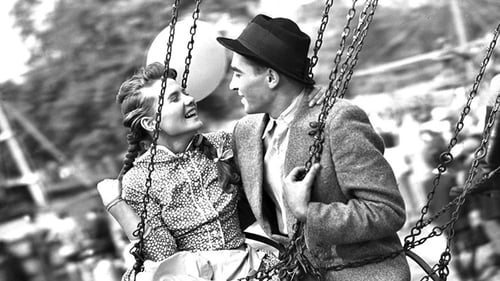
Pataki Mari (as Törõcsik Mari)
In a rural scenery in the throes of difficult changes lives a humble but promising young farmer girl called Mari Pataki. Her father forbids her from seeing the man she loves. The father, above all preoccupied by work on the fields and prospective wealth, decides to give his daughter in marriage to an old but rich man with whom he does business. Land marries land, he says. This seems to be the unyielding rule of the Hungarian peasantry. But the young lover is ready to stand up to any challenge to keep Maris love.
























